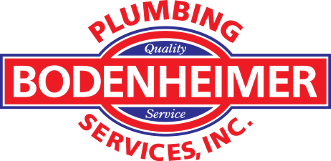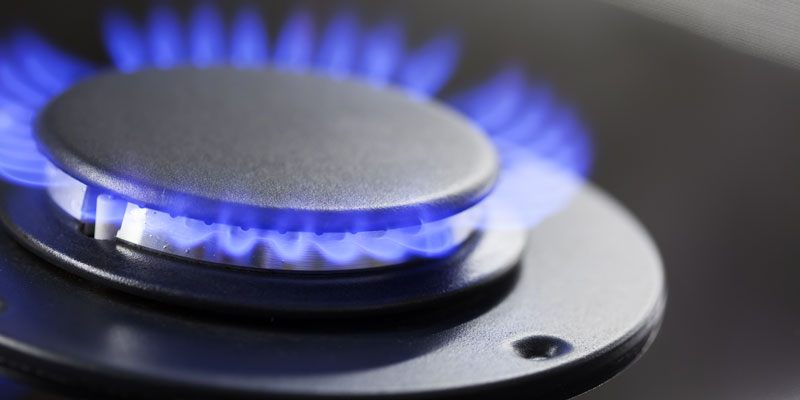Besides electricity, natural gas and propane are two common energy sources that are used in residential and commercial buildings. They are primarily used to power heaters, water heaters, furnaces and cooking appliances. Each of them has its own set of pros and cons.
As a homeowner or property manager in the Winston-Salem area, you may need to take these points into consideration as you make a decision on how to power your buildings.
What are these two energy sources?
Natural gas is composed of a mixture of gases, mainly methane. It also contains propane, butane and ethane. When this gas is processed, or when petroleum is refined, propane is separated as a by-product, liquefied, and stored for use as a fuel. It is also referred to as liquefied petroleum gas or LPG.
Natural gas is supplied to customers in its gaseous state through a network of pipelines that are owned and operated by utility companies. Propane is supplied as a liquid maintained under pressure in cylinders, and is released as a gas through a valve when put to use.
What are their physical and chemical properties?
Natural gas and propane are hydrocarbons. They are both made up of hydrogen and carbon, but with different compositions. Natural gas is lighter than air while propane is denser and heavier than air. They are both colorless and odorless. For the sake of safety, providers add either t-butyl mercaptan or thiophane to the commercial version of both gases. The chemicals give them an odor like that of sulfur or rotten eggs so that leaks can be detected.
What should you consider while choosing between them?
While deciding whether to use natural gas or propane as a fuel, a few important factors have to be taken into consideration.
Existing infrastructure: If you have purchased a completed home or commercial building, you will need to determine the energy source for which your furnaces and appliances are set up. If they are meant for one and you need to change to the other, you will need to invest in conversion equipment for each appliance. It is not possible to change from electric to one of these fuels, and the appliances will need to be replaced altogether in that case.
Availability: Most areas are connected or easily accessible to the natural gas utility grid. In many areas, you will be able to choose between natural gas and propane as your fuel source. In some areas that are not connected to the grid, you will have to opt for a propane supply.
Cost: Propane volume is measured in gallons and natural gas is measured in cubic feet. Propane tends to be more expensive than natural gas, but in some areas it may be the opposite. The installation cost may be higher for natural gas as the pipeline will have to be connected to your home or building, and that requires digging. If you opt for a storage tank on your property, propane may involve an installation cost as well.
Energy efficiency: BTU, or British Thermal Unit, is used to express energy efficiency. It is the amount of energy required to heat a pound of water by one degree fahrenheit. Propane has more than double the BTU of natural gas. In other words, propane produces twice the amount of heat as the same amount of natural gas. Even if you pay more for propane than natural gas in many places, you will use less of it for the same amount of heating. Both these fuels are more economical and more efficient as energy sources when compared to electricity.
What are a few other pros and cons that will help you make an informed decision?
Safety issues should be considered, but both fuels have their pros and cons in this regard. Natural gas is lighter than air and will rise and dissipate into the air in case of a leak. Propane is heavier than air and will tend to collect in the low areas of a living space. As they are both highly flammable, they need to be vented out of any confined spaces in case of leakage.
Another safety consideration is the potential for widespread damage. A pipeline leak or explosion can cause far more impactful damage to life, property, and the environment than a malfunctioning propane tank.
– Propane emits carbon dioxide when it combusts and releases energy. Natural gas is eighty-four times more potent than carbon dioxide and stays in the air for a long time before it breaks down into carbon dioxide. So natural gas may have a greater impact on the environment. However, both fuels burn cleaner than coal, which is used to generate electricity, making them relatively safer for the environment.
– Natural gas is supplied in an uninterrupted flow and propane is delivered in tanks as per schedule. A propane storage tank can be installed on your property for a more uninterrupted supply.
– Natural gas pipelines are underground, while propane storage tanks can be installed underground or above ground. Installing them above ground may hamper the aesthetic appeal of your yard, but it can be shielded from view by a structure such as a high fence with vines.
– A few continuing costs may also be involved. Natural gas pipelines require periodic inspections and occasional maintenance, which are included in your utility bills and do not qualify as additional costs. Propane tanks will need periodic delivery, and that is an additional cost.
– With natural gas, you pay for what you have used when your utility bill arrives. You pay for your propane supply on delivery and it may not be used entirely, especially if you have a large surplus in your storage tank. This can make the estimation of usage fluctuations a greater challenge with propane.
– Propane is portable and makes it more suitable for off-the-grid purposes like barbecue grills, lawnmowers, and many other appliances. It is also a great backup option for areas where the natural gas supply may not be consistent.
In conclusion, natural gas and propane are both efficient, accessible sources of energy. Choosing between them takes some deliberation, and your utility company can help you make a strong and informed decision that will serve you well in the long run.
Contact us at Bodenheimer Plumbing Services, Inc. today for more information about our gas line services in Winston-Salem, North Carolina, and the surrounding areas.
Call us at (336)788-3966 or schedule your appointment online.
We’re always happy to help!


